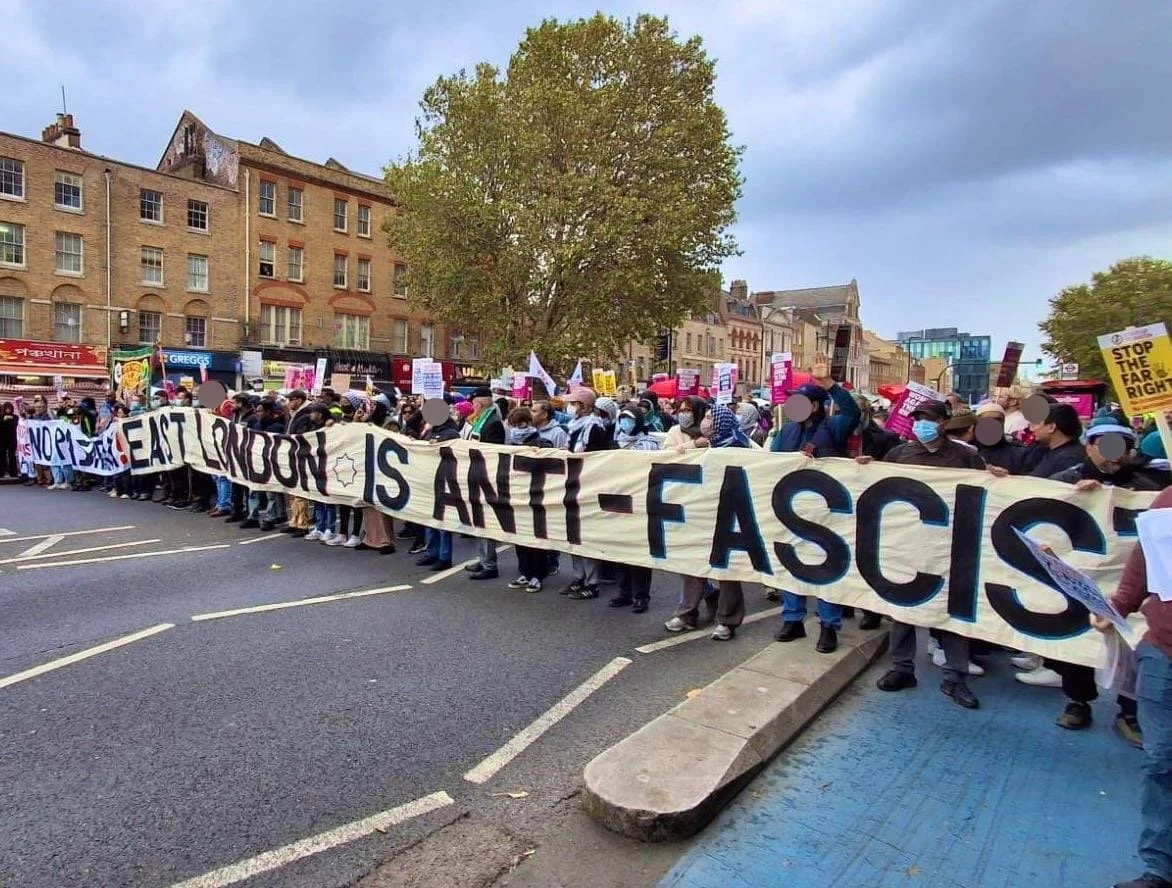News and Comment
Topic
- #KILLTHEBILL
- #killthebill
- 1972
- Abolition
- Abolition & drugs
- Abolition Archive
- Abolition Revolution
- Abolition in the UK
- Abolitionist Digest
- Abolitionist Feminism
- Abolitionist Futures Reading List
- Anthony Lemard
- Anthony Mahoney
- Anti Colonial
- Anti Fascism
- Archives
- Art & Abolition
- Aviah Sarah Day
- Ball & Chain award
- Ball and Chain Award
- Barlinnie
- Barry Prosser
- Beware the reformers
- Black Lives Matter
- Boo
- Book Review
- Borders
- Brighton Alternatives to Prison
- Care
- Child Abuse
- Cleveland
- Comment
- Cops in Culture
- Creative Methods
- Crime Prevention
- Criminal Women
- Criminalisation
- Cynthia Jarrett
- Dangerousness
- Deaths in Custody
- Decriminalised Futures
- Defund the police
- Devolution
- Disability Justice
- Douglas Kepper
- End of RAP
- Everyday Abolition
- Families Outside in Glasgow
- Feminist Criminology
- Follow the money
We Keep Us Safe: Lessons from Whitechapel’s Defence
Last Saturday’s mobilisation in East London showed that real safety and power come not from police or authorities, but from communities organising from within. When neighbors, youth groups, faith networks, and local collectives stand together in solidarity, they create a culture of collective self-defence that builds lasting resilience. The lesson is clear: anti-fascism is most effective when it is proactive, rooted in everyday community life, and linked to political education, solidarity, and shared visions of liberation. True protection comes from strengthening the networks and relationships that bind communities, not relying on the police to keep them safe.
Not all protests are made equal
This week saw thousands in London demanding the government go-back on their announcement to make certain farms liable for inheritance tax.

